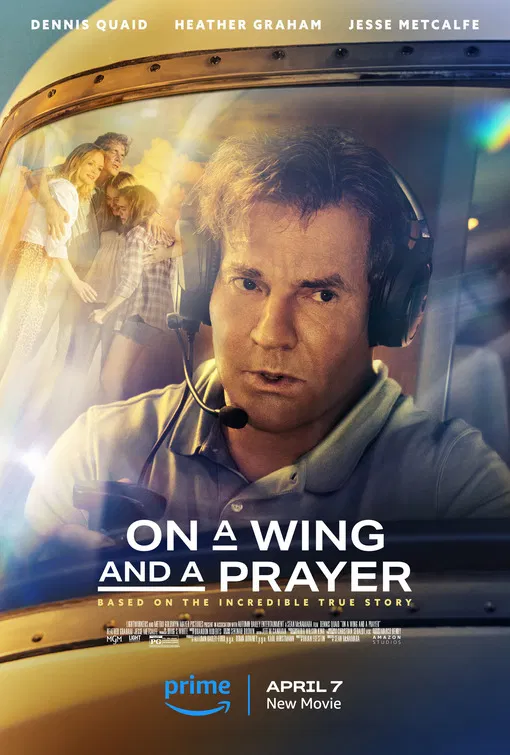“Social Struggles in a Small Town”

| None | Light | Moderate | Heavy | |
|---|---|---|---|---|
| Language | ||||
| Violence | ||||
| Sex | ||||
| Nudity |
What You Need To Know:
DADETOWN is a documentary-style look at Small Town, USA. It is replete with all the rich detail and humor we have come to love about small towns, as well as their jealousies, animosities and blame shifting. Dadetown is beset by a new high-tech, yuppie company called API, which threatens to cause the closure of the old metal plant. The redneck, union men develop a dislike for the API newcomers which erupts into accusation and vandalism. The API executives respond with politically correct, but cold, condescending decorum. Everyone interviewed has their own point of view and agenda, but few offer to bridge the growing social, economic and cultural gap in the town.
DADETOWN is a film that forces viewers to re-evaluate jealousies, envies and prejudices towards one’s neighbors. In a larger sense, the small town is a metaphor for the lost sense of community in our nation, as the high-tech revolution widens the gap between the “haves and the have-nots.” Strong language makes this unsuitable for children, but the implied violence is for the most part necessary to the drama. There is no nudity and only a hint of a sexual relationship between a husband and wife. The film ends stating that segments of society can learn to get along, but it harbors no illusion that this will be easy. Containing many obscenities and some violence, this movie has a trick ending.
Content:
(Pa, Pa, NA, AB, B, H, LLL, V, A, M) Pagan worldview including New Age, anti-biblical, biblical, & materialistic elements; 36 obscenities, 4 profanities & 16 vulgarities; implied violence, angry verbal interchanges, vandalism, graphic image of dead deer on doorstep, & dead child in body bag; alcohol use; and, revenge
More Detail:
Numerous people are interviewed in what may be the initial PSA footage including the mayor and several town councilmen. At first praises for the small town’s benefits are high, though cracks of disappointment appear over the decline of Gorman Metal (from making airplanes to manufacturing paper clips) and the invasion of API and its politically correct ways. API workers enjoy the small town setting but bemoan its backward ways and try to introduce cappuccino, better designer stores, fast food, and movies. Then the voice of reason, Bill Parson, who has been a town councilman of 34 years and believes that these factions can learn to get along, dies.
Tensions spiral up a notch when 150 people are laid off at the Gorman Metal Plant. With the rug pulled out from under them, many long time residents begin to blame the new API executives and employees, who live in much nicer and newer homes. Acts of vandalism against the API employees begin to occur. Gorman Metal announces that it will shut down the plant entirely in one year. The town’s union workers are incensed and declare a fierce general strike against Gorman. Joe Gorman cites the fact that pacific rim countries are able to produce ten times the amount of paper clips for the same price as Gorman Metal. Stress reaches a breaking point when a son of Councilman Newell is accidentally shot after a factory worker carries his shotgun down to the strike line and mistakenly leaves the safety off. Every resident has an opinion about the situation, but few have solutions.
This is not the type of film one would go to see for escapist entertainment, but it is the type of film that stays on your mind for hours after seeing it. Perhaps it is that the film presents social and economic problems that are not easily solved with one line answers. Perhaps, it is the surprise this film holds at the very end of the closing credits.
The varying points of view in the movie really force you to think. They force the viewer to re-evaluate his own jealousies, envies and prejudices towards neighbors. At first glance one might think Russ Hexter is making fun of Small Town, USA. At second look, however, it is evident that he really cares for the small town but is unwilling to overlook the veneer of politeness that covers the selfish partisan spirit and xenophobia underneath. In a larger sense, the small town in a metaphor for the lost sense of community in our nation as a whole, as the current high-tech revolution widens that gap between the “haves and the have-nots.” And yet, it doesn’t opt for the easy socialist solution.
Artistically, the film is very competently made in a documentary style. It manages to capture humorous and poignant moments in TV shows like those seen on “America’s funniest Home Videos” or “Cops”, and also create the same style of the much underrated HOOP DREAMS. In fact, one can’t really appreciate the notable skill that went into making this film until the ending credits roll. Strong language may mare this film for some Christians (especially when one remembers that an exhaustive survey on CURSING IN AMERICA showed that only 7% of the American people curse on the job and only 12% curse in their leisure time). With the exception of the graphic images of a dead deer, the implied violence is handled tastefully. In the closing credits, the film makers reveal they have told the audience a lie. This could offend some moral Americans. In retrospect, though, this reviewer believes what the director did was legitimate, and immeasurably increases the impact of the film.


 - Content:
- Content: 

